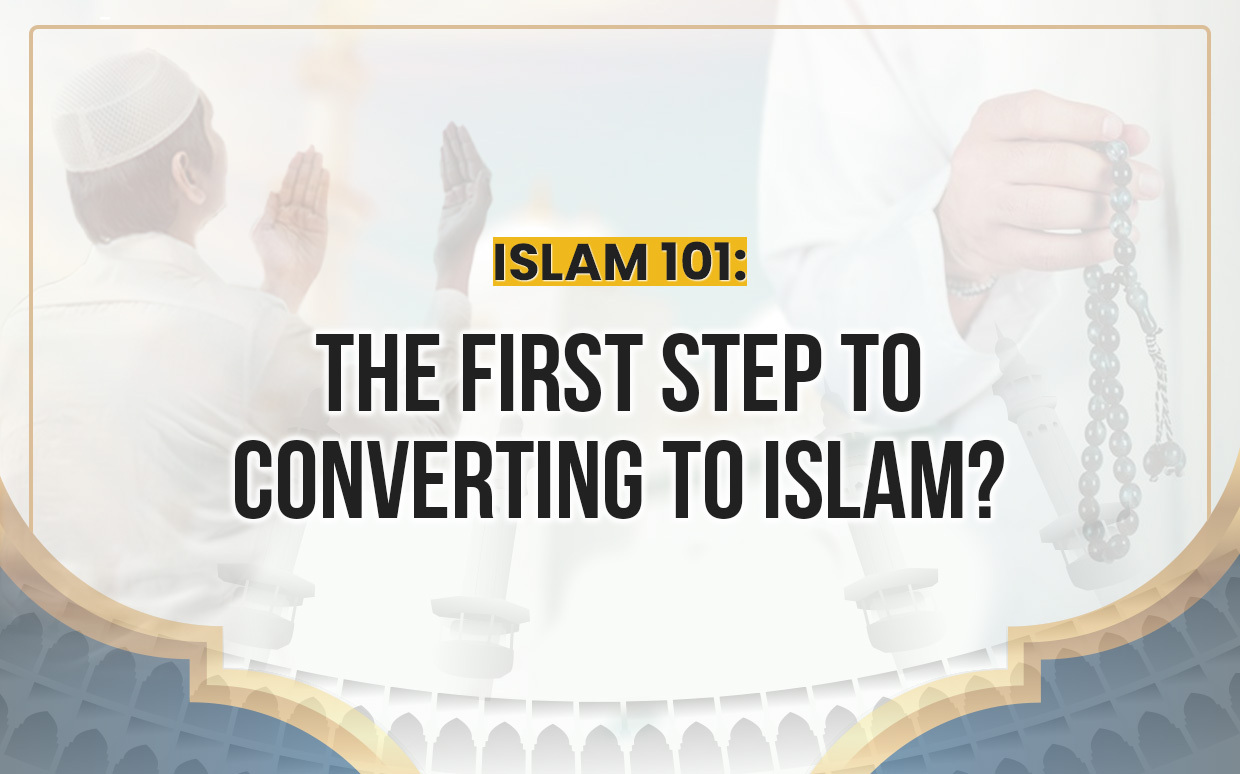Conversion to any religion including Islam is a journey that could get in someone’s core being. It usually arises from a deep comprehension, a spiritual attachment, and an obligation to the ideologies and lifestyle of the new religion.
In this guide, we’ll walk you through the essential aspects of converting to Islam: understanding the basics of the conversion, the gains associated with the exercise, as well answering the myths surrounding the conversion process.
Understanding Din-e-Islam
However, for one to understand the beauty of Islam and how important it is, one must know the basics and beliefs of this holy scripture.
Basic Beliefs of Islam
On its part, Islam believes in one, all-knowing and merciful God – Allah and the final messenger of God to man, Prophet Muhammad (Peace be upon him). This involves the idea of Tawhid. Belief in angels, Quran, prophets (Mubashir), the Last Judgement, and destiny are also included in it. Islam deals with everything that occurs in your life including harmony, peace, and justice.
Pillars of Islam
For a Muslim, the Five Pillars of Islam are a way of life. They are Shahada/ faith, Salah/prayer, Zakat/charity, Sawm/fasting during Ramadan, and finally Hajj/pilgrimage to Mecca. They all have deep spiritual significance as the faith must cover different aspects of man’s life to be complete and rewarding.
Learn More: What Are the 5 Pillars of Islam?
Converting to Islam
The first step towards conversion is a verbal proclamation of the faith known as the Shahada.

Shahada
Shahada, the first pillar of Islam, is the testament of faith. It states:
اشْهَدُ انْ لّآ اِلهَ اِلَّا اللّهُ وَ اَشْهَدُ اَنَّ مُحَمَّدً اعَبْدُهوَرَسُولُه (“There is no God but Allah, and Muhammad is the Messenger of Allah.”)
This proclamation signifies total submission to Allah and the recognition of Muhammad (PBUH) as His prophet.
How do you take the Shahada?
The Shahada should be said with conviction and understanding of its meanings. It is preferably said in Arabic, though it can be repeated in any language. This is usually done in the presence of two witnesses. However, the main condition is sincerity, as its purpose is to confirm one’s complete faith in Allah.
Read More: How to Pray in Islam
Can I take Shahada by myself?
Yes, one can take Shahada alone. The act is between the individual and God. Nonetheless, having witnesses helps integrate you into your local Muslim community.
Benefits of Converting to Islam
There are many spiritual and psychological advantages of conversion to Islam. It lays out a clear way for living, spiritual serenity, personal satisfaction, and social cohesion. Life’s grandest concerns of being, purpose, and the beyond could receive clarity through Islam’s teachings.
Misconceptions Frequently Associated with Converting to Islam
Common misconceptions can deter people from converting to Islam. Some believe it to be a religion of violence, and oppression, or that it is primarily an Arabic or Eastern religion. However, Islam is a universal religion promoting peace, justice, and equality for all humanity.
For Those Who Haven’t Yet Been Persuaded to Convert
However, do not hurry if you are still uncertain about converting to Islam. The seeker embarks upon an inner spiritual journey that is full of patience, reflection, and genuine searching which takes time. Always inquire, and expand your comprehension.
That’s it from us on how to become a Muslim! However, joining another religion should be considered carefully. Embrace patience for your own self, and within no time you will see that this journey is a walk-over.
Read More: Biggest Sin in Islam
FAQs Related to Converting to Islam:
Why do people choose to convert to Islam?
There are a number of reasons why people convert to Islam. To some people, Islam gives them peace and meaning in their lives, while others have a spiritual connection with the faith. A highly personal venture that is characterized by conviction, curiosity, and faith.
How can I learn more about Islam before converting?
Muslim sources such as the Quraan, hadiths, and scholarly interactions in centers that are Muslim all assist one in learning much about Islam through Islamic texts. It is also possible for interested individuals to find plenty of internet resources and discussion groups on Islam.
How involved is the process of converting to Islam?
Converting to Islam involves the declaration of Shahada with sincerity and conviction. After that, it is a gradual process of learning and practicing the teachings of Islam at your own pace.
What happens after the declaration of Shahada?
After the Shahada, new Muslims gradually learned about and incorporated the Five Pillars of Islam into their life: prayer, charity, fasting, and pilgrimage. They become part of the local Muslim community which can provide support and guidance.
Are there any customs I should know about before converting?
Islam encourages modesty, respect, and kindness. Learning about customs such as the Islamic dress code, diet (Halal food), and daily prayer rituals would be beneficial.
Can I still maintain my cultural identity after converting to Islam?
Absolutely. Islam is a universal religion and has followers from all ethnic and cultural backgrounds. While the mandatory religious practices need to be adhered to, one can still maintain their cultural practices as long as they are not contrary to the teachings of Islam.
Are there any resources for new converts?
There are numerous resources available for new converts, both online and offline. Local Islamic centers often provide resources and classes for converts. Online resources include various educational websites, forums, and social media groups dedicated to helping new converts.












